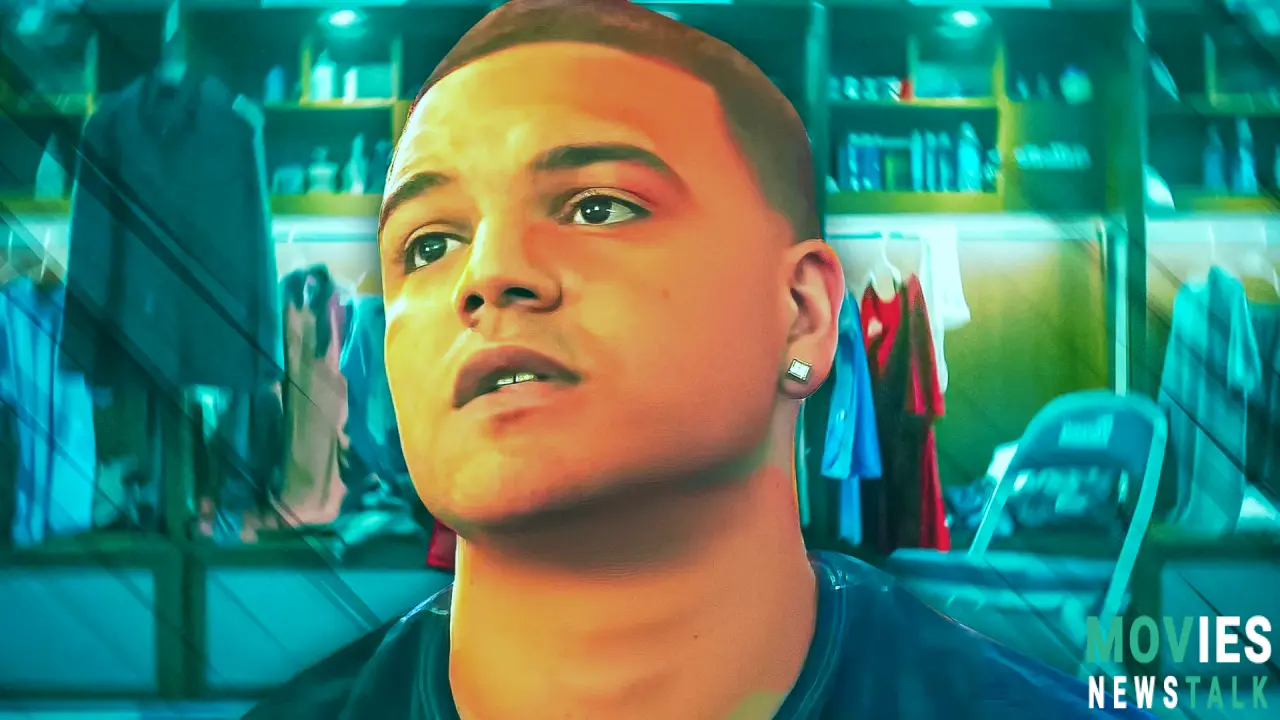Aaron Hernandez and the NFL's Painkiller Problem: A Look at American Sports Story
American Sports Story: Hernandez, Pain, and the NFL's Painkiller Culture
FX's American Sports Story tackles the complex life of Aaron Hernandez. Episode 6 ("Herald Street") delves into his high ankle sprain during the 2012 NFL season; his struggles, and those problematic aspects related to drug use. This dramatization is loosely based onreal events; but highlights crucial events. It explores Hernandez's use of cannabis and prescription painkillers, showing the darker aspects surrounding NFL players and their dependence upon addictive substances which later caused several other extremely problematic issues and played a massive role in his own self-destructive tendencies.This article looks closely at what really transpired, the usage of prescription painkillers, and those kinds of questionable, extremely ethically problematic aspects regarding the NFL's treatment of injuries and its problematic encouragement of painkiller addiction within these young professional athletes. Spoiler alert: if you don’t want those storyline points revealed, step away now!
Josh Rivera stars as Aaron Hernandez in this dramatic retelling, showing Hernandez’s struggles and many triumphs; which includes his time in theNFL, highlighting the impressive early career accomplishments; yet focusing on some more disturbing later actions including the tragic Odin Lloyd murder trial; This series showcases some powerful dramatic interpretations involving those problematic decisions. It includes appearances from big names; Norbert Leo Butz asBill Belichick, andPatrick SchwarzeneggerasTim Tebow, among others. This series aims at tackling some difficult aspects regarding American history that many have forgotten about.
Vicodin and Cannabis: Hernandez's Self-Medication Strategy
The series depictsHernandez suffering from a devastating high ankle sprain to his right foot. He had this accident while blocking during a2012 NFLgame – an injury resulting in multiple missed games (againsttheBaltimore Ravens,Buffalo Bills,andtheDenver Broncos). It shows this injury accurately and emphasizes the missed opportunities resulting from this very real problem impacting multiple games.
The episode detailsHernandez's self-medication— usingcannabis alongside prescriptionVicodin(provided by thePatriots'medical team).It wasn’t unheard of! As mentioned inThe Boston Globe,Hernandezlater discusses this reliance on painkillers during his time in prison; showcasing the incredibly problematic cycle created when this addiction became normalized and even accepted within professional players during these periods of peak professional sporting involvement and high athletic intensity that may sometimes be expected from a sports professional; that physical, mental, and emotional intensity might trigger addiction in individuals even previously not showing those problems prior to involvement in professional sports.
Toradol Injections: A Fast-Acting Fix with Dangerous Long-Term Effects
Hernandez, like so manyNFLplayers, also usedToradol—a super fast-acting painkiller; something needed for expediting his return to playing (mentioned byBleacher Report). That shows what happened behind the scenes; and some ethically concerning, unethical practices enabled within these professional sporting environments.
Toradol, although not an opioid, is dangerous without proper use, only to be administered as a very short term treatment, according toDesign for Recovery, never lasting beyond a 5-day limit!It is sadly overprescribed, leading to immense issues; as anNFLlawsuit involving those extremely damaging, severely negative health impacts (started in 2011) shows! Hernandez's addiction to bothToradolandcannabis are mentioned as having affected his volatile behavior and mental instability.
Hernandez's Words: The NFL's Contradictory Approach
Hernandezspoke candidly about theNFL'scontradictory stances toward cannabis (banned) and painkillers (permitted— in his interview inRolling Stone). He is quoted saying, “They wouldn’t let you smoke marijuana but they’d let you take all the painkillers you wanted.” This hypocrisy remains important; creating further questions about the responsibility placed upon theNFLand its questionable ethical guidelines around what are permitted substances, given the long term impacts they often create. It raises a lot of troubling and ultimately quite important ethical points regarding NFL standards and ethical guidelines toward injuries sustained by these athletes.Despite his pre-draft promise of submission for multiple weekly tests, his cannabis habit persisted until the end. And synthetic marijuana (K2) shows he is using such products near his death, a critical fact used to further elaborate his problematic usage. His comments really highlight just why drug abuse became so prevalent within the league; those problematic contradictions would also cause numerous problems later on.
Conclusion: American Sports Story and a Painful Legacy
American Sports Storydoesn't shy away from those ugly truths: pain management forNFLplayers can result in incredibly damaging and problematic dependence issues. This dramatic depiction, while fictionalized for viewers; nonetheless provides significant insights into a critical area. Hernandez's issues show this clearly. American Sports Story, as the title already alludes, uses that painful and tragically short professional sporting life of this exceptionally talented, and profoundly troubled individual, highlighting those deeper aspects rarely discussed within these competitive contexts.

